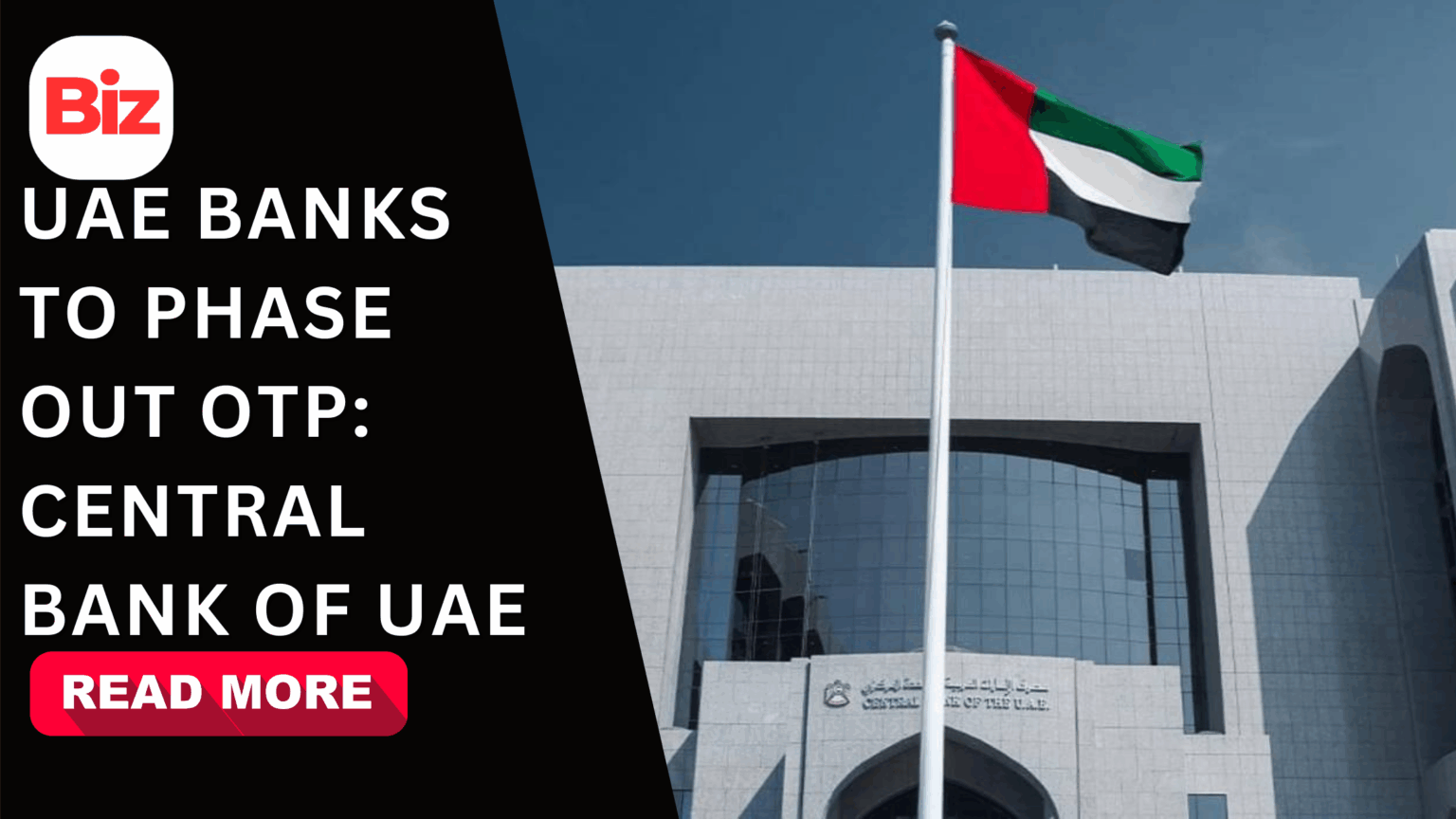It is likely that the well-known beep of SMS with one-time password (OTP) will soon become a memory of the UAE banks customers. Financial institutions are getting ready to get rid of OTPs and to use more robust, resilient digital authentication protocols under new regulatory guidance issued by the Central Bank of the UAE.
Why OTPs Are Being Replaced
OTPs have long been the default protection against Internet fraud. An SMS code became a digital key each time a customer made a transfer or an Internet purchase. However, due to the development of cybercrime, the vulnerabilities of this system undergo changes. Scammers have learned how to take advantage of SIM-swap scams, intercept text messages, and shower customers with codes via phishing schemes.
Security Push by Central Bank of UAE.
With such weaknesses in mind, the Central Bank of UAE is moving the banking industry to more secure technologies. Biometric verification, including fingerprint scans and face recognition, mobile app-based tokens and push notifications are becoming the new standard.
Future-proofing the financial system, as one senior banking analyst in Dubai put it, is the shift. The Central Bank is eager to see that the digital transactions can be safe, frictionless, and trusted, especially as the UAE is getting closer to becoming the cashless economy.
Banks Begin Transition
Changes have already started being implemented by banks. Others are implementing biometric approvals directly into their mobile apps, with still others trialling authentication without any text message whatsoever. Instead, customers can be sent a secure prompt in their banking app to approve transactions with one tap.
What It Means for Customers
To consumers, it might be a matter of adjusting. People are comfortable with the simplicity of OTPs, yet the leadership of the industry emphasizes that the new practices are not only safer, they are also more comfortable. Long gone are the days of waiting to get a text message- particularly when traveling outside the country or experiencing network slow down.
Looking Ahead
There is no hard deadline of the full phase-out set by the Central Bank of UAE. But insiders reckon that in the next one year, SMS-based OTPs will be mostly out of the financial picture in the country.
With the UAE setting itself as a digital finance leader, the implementation of a one-by-one phase of OTPs reflects a larger obligation. A commitment to technological innovation alongside solid consumer protection. To customers, the transition is a new frontier in their engagement with money, with security being the key feature embedded in even the devices they hold with them all day.
FAQs
- Why is OTPs being withdrawn in UAE?
The reason is that SMS-based OTPs are susceptible to fraud techniques (SIM swaps, phishing, interception). The Central Bank of UAE desires more robust, more secure authentication. - What will replace OTPs?
Banks are shifting to biometric authentication (fingerprint, facial recognition), app-based secure tokens, and push notifications in mobile banking applications. - Will the customers require new devices or apps?
Most of the time, the customers simply have to upgrade their current banking application. It might also need smartphones with fingerprint or facial recognition to access some of its more advanced features such as biometric approvals. - So when will OTPs finally go away?
The Central Bank of UAE did not specify a deadline, but analysts working in the industry say that OTPs should be phased out of use in the next year. - Does this change pose a risk to the customer?
Yes. New approaches eliminate the need to use telecom networks and offer more robust and smooth security for online banking.








